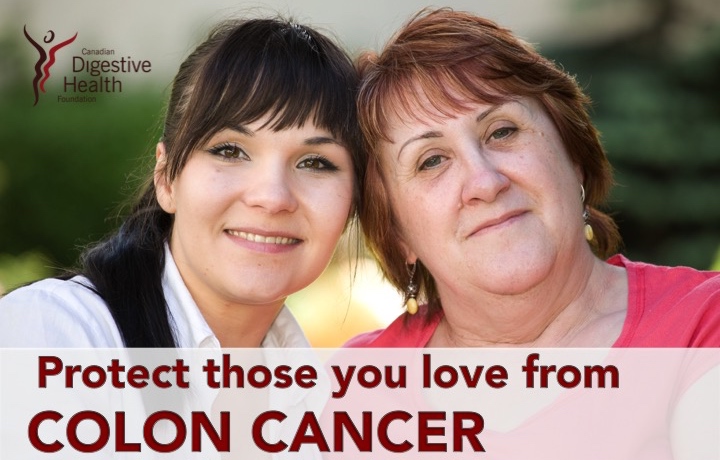
Colon cancer is the second-most common cause of cancer deaths in Canada. On average, 23,000 Canadians are diagnosed with this disease each year, and 9,000 will die. It doesn't have to be this way. Colon cancer is virtually preventable -- if detected and treated early.
Colon cancer is detected through routine screening. Unfortunately, it often doesn't come with any symptoms, especially, in the early stages of the disease. When symptoms do occur, they may include:
- Altered bowel habits
- Diarrhea
- Narrow stools or blood in stools
- Unexplained weight loss
- Nausea and vomiting
- Abdominal pain
- Fatigue
When abnormal cells, called polyps, grow in the lining of the
intestines, they have the potential to become cancer. These cancerous cells can grow, bleed, migrate to other parts of the body and threaten your life.
Colon cancer can be caused by genetic or environmental factors. People aged 50 years or older and those with a family history or prior diagnosis of polyps have the highest risk of developing colon cancer.
Screening programs play a vital role in detecting up to 95% of colon cancers and are considered an essential part of digestive healthcare. While each province/territory
has its own screening recommendations, common screening tests include:
- Fecal occult blood test (FOBT)
- Fecal immunochemical test (FIT)
- Sigmoidoscopy
- Colonoscopy
Help Reduce Your Risk Through Prevention
Alongside screening, growing evidence suggests diets low in fat and meat, and higher in fruits and vegetables can help protect against colon cancer. Eating whole, rather than processed, wheat may also help reduce your risk, along with getting enough Vitamin D. To improve your knowledge and your reduce risk, read our Colon Cancer Fact Guide today.
|